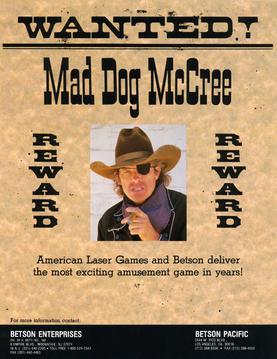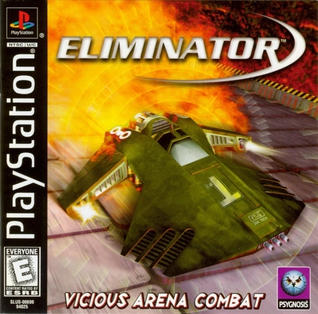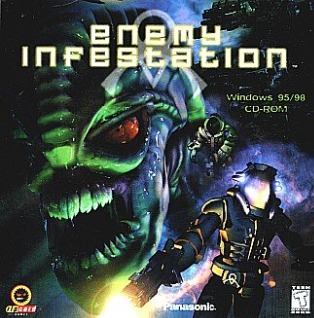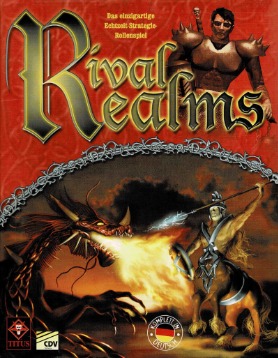PC World is a global computer magazine published monthly by IDG. Since 2013, it has been an online-only publication.
The Panasonic M2 is a video game console platform developed by 3DO and then sold to Matsushita, a company known outside Japan by the brand Panasonic. Initially announced as a peripheral chip for the 3DO Interactive Multiplayer, it was later unveiled as a standalone console. The console was cancelled in 1997, but the M2 technology was incorporated into other devices.

GamePro was an American multiplatform video game magazine media company that published online and print content covering the video game industry, video game hardware and video game software. The magazine featured content on various video game consoles, personal computers and mobile devices. GamePro Media properties included GamePro magazine and their website. The company was also a part subsidiary of the privately held International Data Group (IDG), a media, events and research technology group. The magazine and its parent publication printing the magazine went defunct in 2011, but is outlasted by Gamepro.com.

Star Wars: Rebel Assault is a rail shooter video game developed and published by LucasArts for DOS, Macintosh, Sega CD and 3DO Interactive Multiplayer systems, set in the Star Wars universe. Released in 1993, it is the first CD-ROM-only game to be published by LucasArts. The game's story focuses on a young pilot called Rookie One as they are trained by, and subsequently fights for, the Rebel Alliance in the Galactic Civil War.

FIFA 2000 is a football simulation video game developed by EA Canada and published by Electronic Arts. It was the seventh game in the main FIFA series. The game was released for Microsoft Windows and PlayStation. A version was also released for the Game Boy Color, developed by Tiertex Design Studios and published by THQ.

Wizardry V: Heart of the Maelstrom is the fifth scenario in the Wizardry series of role-playing video games. It was published in 1988 by Sir-Tech for the Commodore 64, Apple II, and IBM PC compatibles. A port for the Super Famicom and FM Towns was later developed and published by ASCII Entertainment in Japan. Wizardry V was released in the US for the Super NES by Capcom in 1993, and subsequently re-released for the Satellaview subsystem under the name BS Wizardry 5.

Mad Dog McCree is the first live-action laserdisc video game released by American Laser Games. It originally appeared as an arcade game in 1990.

F-1 World Grand Prix, developed by Paradigm Entertainment, is a Formula One racing game/sim first released in 1998 for the Nintendo 64 game console and to later platforms including the Sega Dreamcast, Microsoft Windows, Sony PlayStation, and Game Boy Color. The Nintendo 64 version is based on the 1997 Formula One season, featuring each of the 17 circuits from the season and all 22 drivers, with the exceptions of Jacques Villeneuve and the MasterCard Lola team.
Tech Advisor, previously known as PC Advisor, is a consumer tech website and digital magazine published by Foundry, a subsidiary of IDG Inc, which also produces Macworld, PCWorld and TechHive. IDG Inc was acquired by Blackstone in 2021.

Romance of the Three Kingdoms IV: Wall of Fire is the fourth in the Romance of the Three Kingdoms series of turn-based strategy games produced by Koei and based on the historical novel Romance of the Three Kingdoms. Romance of the Three Kingdoms IV: Wall of Fire was the last game in the series to be released on the PC in the United States until Romance of the Three Kingdoms XI. This was also the last Romance of the Three Kingdoms game to be released on the SNES.

Wild Metal Country is an action video game developed by DMA Design. The game was published by Gremlin Interactive and released for Microsoft Windows in May 1999. A Dreamcast port, known as Wild Metal, was released in February 2000 by Rockstar Games, which later also re-released the Windows version.

Disney's Aladdin in Nasira's Revenge is a platform game based on the Aladdin franchise which was developed for the PlayStation and PC by Argonaut Games and distributed by Disney Interactive in 2000. In the game, Aladdin, Abu and Jasmine fight against Jafar's sister Nasira who wants to bring him back to life. Nasira's Revenge received generally average reviews.

Mob Rule is a real-time strategy video game for Microsoft Windows released in 1999 by Simon & Schuster and 3Studio. It is the successor to the 1997 video game Constructor. The goal of the game is to construct buildings and fight enemy teams in a Mafia-themed background. It was re-released on GOG.com in 2010 for Windows and in 2013 for MacOS.

PC Games is a monthly-released PC gaming magazine published by the Computec Media GmbH in Germany.

Buggy is a racing game developed and published by Gremlin Interactive in 1998, and published in North America by Fox Interactive. The game was released in North America as Team Losi RC Racer due to it having a license from RC car manufacturer/racing team Team Losi.

Eliminator is a shooter game developed by Magenta Software and published by Psygnosis for PlayStation and Microsoft Windows in 1998–1999.

Enemy Infestation is a strategy video game developed by Micro Forté and published by Ripcord Games for Microsoft Windows in 1998.

Rival Realms is a strategy video game developed by Activ Pub Studios for Microsoft Windows in 1998–1999.
















